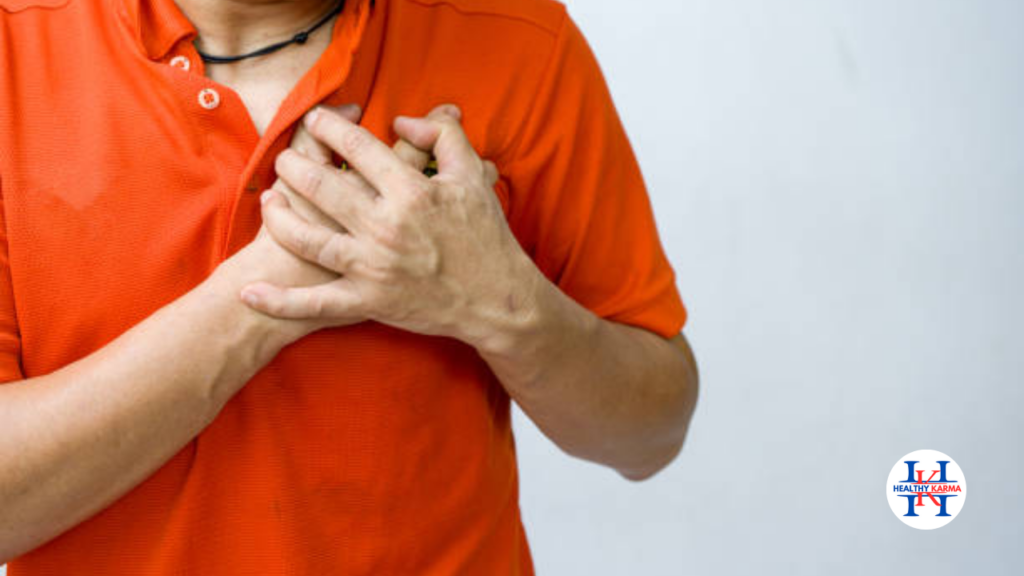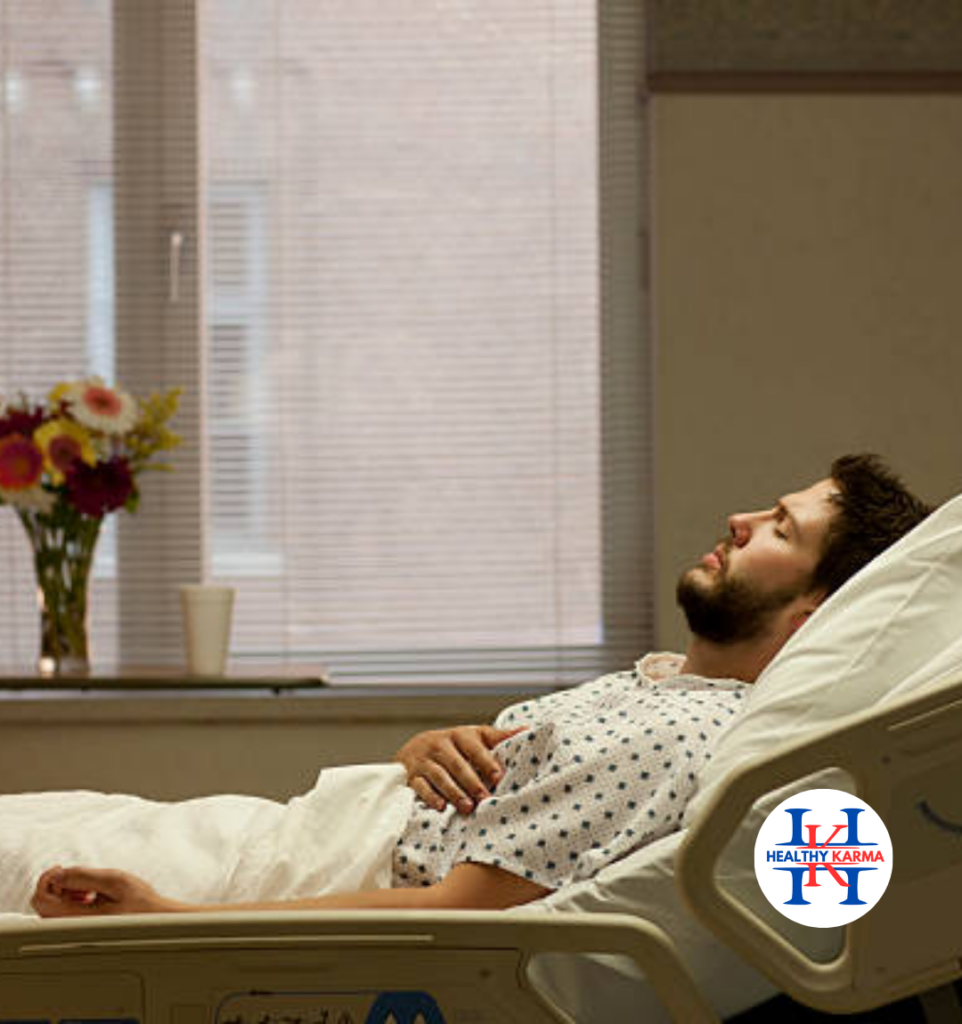

SURVIVING A HEART ATTACK AT 45 & CROSSING 85
Today, on my grandson’s 5th birthday, I still clearly remember, the horrifying incident 40 years back, when, at the age of 45, my life took an unexpected turn when I experienced a life-threatening heart attack. It was a moment that forever changed the course of my existence. I am grateful that surviving a heart attack at the age of 45, led me to a remarkable journey towards longevity till the age of 85!
This 40 year long journey is a testament to the power of the human spirit and the profound impact that surviving a heart attack can have on one’s life. It’s a story of triumph over adversity, of embracing a newfound appreciation for life, and of the pursuit of a heart-healthy lifestyle that has allowed me to thrive and cherish every moment well into my 85th year.
I had never expected that one day was about to change my life forever for the next 40 years. It was an ordinary day, just like any other. It was a Monday, and I woke up feeling slightly tired but brushed it off, attributing the same to the weekend outing that I had with my friends. It was maybe the stressful travelling due to my job that perhaps that was a little too tiring.
Little did I know that this subtle fatigue was a warning sign of something far more serious lurking beneath the surface. Brushing it off, I got ready for office, gulping down my breakfast, as I was already late. I had to drop the kids off to school and then pick up my colleagues as it was my turn at the car-pool.
Having dropped the kids, I picked up my colleagues on the way to work. Once I took the wheel, after picking up my colleagues, there was heavy Monday morning traffic on the expressway. Though the distance to the office was only 6 km on the run, due to the heavy traffic on the route, sometimes it took more than an hour to reach the office.
Though the weather was pleasant outside in the season of spring, the air-conditioner inside the car was in perfect working order. Since I was at the driver’s seat, my colleagues were enjoying their conversations and their jokes, and I too could not help smiling.
Suddenly, an unusual heaviness settled in my chest, accompanied by a shooting pain down my left arm. I felt nauseous and broke into a cold sweat. Panic set in as I struggled to catch my breath, with my entire body sweating in the air-conditioner. I knew something was terribly wrong.
Despite the fear coursing through me, I pulled up on the side of the street with great difficulty. The moment I hit the brakes, I just collapsed at the steering wheel. There was a complete blackout and the next thing I could remember was being surrounded by a battery of devices in the hospital.

I found myself in complete darkness and the woke up to the sound of beeps all around me. My entire body was hooked to all types of machines spewing out the data on my vital parameters. I wanted to go the bathroom to relieve myself, but a voice suddenly ordered me to lie down as I was not allowed to move out of the bed.
It was the nurse on duty, and she provided me with a bed pan to relieve myself. The clock on the wall showed 3 am in the morning. The last thing that I could remember that I was the at the wheel of the car at around 8 am the previous morning!
The nurse gave me an injection to relieve the pain and allow me to sleep. I slipped back into unconsciousness and woke up after 9 am when breakfast was being served.
The doctor on duty came around for the inspection informed me that I had suffered a severe heart attack and I needed to immediately undergo a heart surgery!
My colleagues had called the paramedics who arrived promptly and rushed me to the hospital. After a battery of tests and assessments, the doctors confirmed that I had indeed suffered a heart attack and that I needed to undergo a heart surgery immediately.
The news was shocking and difficult to accept. I couldn’t believe that something so severe could happen to me at such a relatively young age of 45.
The sudden heart attack served as a wake-up call, shaking off the very foundation of my existence. It forced me to confront my mortality and the consequences of my current lifestyle.
I realized that I had been taking my body and my health for granted, assuming that I was invincible and immune to health issues as I was too young to suffer from any disease.
The impact of the heart attack extended well beyond the physical realm of the pain and the suffering. Surviving a heart attack brought forth an array of emotions within me, ranging from fear and anxiety to determination and resilience to lead a healthy lifestyle.
After the heart attack and the surgery, I had to spend two to three days in the cardiac care unit, where the medical team stabilized my condition, managed the pain, and conducted further tests to assess the extent of damage to my heart. The doctors prescribed essential medications to regulate other systems in my body including blood pressure, cholesterol levels, etc.
In the following days, I underwent various diagnostic procedures, such as electrocardiograms (ECGs), echocardiograms, and stress tests, to determine the overall health of my heart and identify underlying conditions that might have contributed to the heart attack and the corrective actions that I would have to take in my lifestyle.
The medical professionals provided insights and advice regarding the specific risk factors to my condition, helping me understand the importance of managing a healthy lifestyle effectively over a long period of time.
The medical treatment extended beyond the hospital stay, involving regular follow-ups with my cardiologist to monitor my progress and make necessary adjustments to my medications. Their guidance and expertise played a crucial role in my recovery journey.
Acknowledging the fact that my lifestyle had played a significant role in the heart attack, I knew that radical changes were in order.
Not only on the personal front but also on the personal front. I had to make the tough choice of shifting to a job that was less stressful if I was to increase my lifespan.
Taking this step meant that I had to compromise on my financial lifestyle also. With the reduced monetary benefits, there would have to be massive cuts on the personal expenses, as the medical expenses were going to rise for the rest of my life.
The first and the foremost step towards the new lifestyle after surviving a heart attack was to adopt a heart-healthy diet. I had to reduce my intake of saturated fats, processed foods, and excessive salt. Instead, I needed to adopt a more balanced approach to my eating habits.
Regular physical activity was to become a non-negotiable aspect of my life, whether I was at home or on vacation. I had started with simple exercises, such as brisk walking, and gradually progress to more intense workouts with the approval of my doctors.
Another crucial lifestyle change was to quit smoking, which I had been doing for years. I got into the habit as I needed to channel the stress on my professional commitments.

Very well knowing that it was a bad habit and that I had to quit the same if I wanted to live long. The sudden heart attack and the circumstances following the same acted as the catalyst I needed to finally kick this harmful habit and improve my cardiovascular health substantially.
At the young age of 45, I still had a long way to go with my sex life in the bedroom. However, with the current circumstances, I had to curtail my sex life at least till the time that my heart muscles healed completely.
After that, I would have to take certain precautions while having sex. It was not that I had to avoid it completely, it was just that I would have to take pre sex and post sex precautions. I would have to take a particular medicine before sex.
Therefore, instant sex was out of the question as it would put too much pressure on the heart muscles due to the excitement and the increase in blood pressure. Sex also would have to be a planned session, just like a diet plan!

One of the major lifestyle changes that take place after a heart attack is that cardiac rehabilitation plays a pivotal role in the recovery process.
Under the guidance of doctors, I engaged in a structured program that included monitored exercise sessions, education on heart health, and emotional support.
The new life order was not without its share of obstacles. Despite the warnings from my counsellors and therapists, the enormous levels of stress, due to the changes in lifestyle and the professional fronts were the main culprits.
There were days when I experienced moments of doubt and fear. The emotional aftermath of the heart attack was profound, and anxiety about future health issues loomed large.
I had to learn to manage stress and navigate through the fear of another cardiac event. Emotional support from my family and healthcare professionals was invaluable during this time.
I had started suffering from constant mood swings and irritations over the smallest of things, sometimes even shouting at the kids for no fault of theirs, very well knowing that it would hamper my chances of recovery and my relationships in the long term.
The support of my family, friends, and even online communities proved invaluable during this challenging phase. Their encouragement, understanding, and shared experiences helped me feel less isolated and motivated me to stay on track with my recovery goals.
Equally significant was the emotional support provided by professional the therapists and the doctors. Dealing with the aftermath of a shock from a critical condition like a heart attack can be emotionally taxing for any person and those around them, and having a trained professional to talk to helps to manage both feelings and fears effectively.
Additionally, making significant lifestyle changes was not always easy. Breaking old habits and adopting new ones required discipline and determination.
There were instances when I felt tempted to revert to unhealthy behaviours, but I reminded myself of the importance of my long-term health and the promises I made to myself and my loved ones. The lessons learned during this phase laid the foundation for a healthier and more fulfilling lifestyle that I continue to lead today.
A healthy lifestyle needs a strong foundation that is laid out by constant support from family, friends and social support groups. This is the biggest challenge that tests your personality characteristics.
With the expert guidance of healthcare professionals, heart-friendly dietary habits became the cornerstone of a healthy lifestyle and longevity. Fresh fruits and vegetables providing essential vitamins, minerals, and antioxidants gave way to McDonalds and other processed foods. Heart-healthy fats, such as those found in avocados, nuts, and olive oil, replaced the saturated and trans fats in the diet plan.
Maintaining a healthy weight became a priority for reducing the strain on my heart. Water and fresh fruit juices gave way to soda cans and cokes, reducing the intake of sugary drinks, which are one of the major causes that lead to an unhealthy lifestyle.
Alongside a heart-conscious diet, a regular and moderate exercise routine tailored to my needs and capabilities started laying a strong foundation for longevity and a healthy lifestyle. The exercise regimen included a mix of cardiovascular exercises, strength training, and flexibility workouts. Gradually, over time stamina and physical strength improved, and regular exercise became an enjoyable part of my daily routine, rather than a chore.
In addition to dietary changes and exercise, other positive lifestyle habits that played a vital role in my recovery and overall heart health:
Stress Management: Managing stress daily through relaxation techniques, such as meditation, mindfulness and deep breathing exercises became a regular feature of a healthy lifestyle. This practice not only reduced the stress levels but also helped lower my blood pressure levels, which would help improve blood circulation in the body.
Regular Check-Ups: Regular appointments with the doctors and regularly monitoring the progress on health and health related issues ensured that I reduce the risk of another heart attack in the future that could prove fatal with increasing age. The importance of taking the prescribed medications on time, became part of a healthy lifestyle.
Limiting Alcohol Consumption: Even though I was not an alcoholic, I did use to have a couple of cans of beer while watching my favourite sports channel over the weekend. As part of a healthy lifestyle, I moderated my alcohol intake, I chose to drop the beer in favour of fresh fruit juice, recognizing that excessive levels of alcohol could have adverse effects on my heart and overall health.
Prioritizing Sleeping Habits: Developing healthy sleeping habits became a priority, as it played a crucial role in maintaining cardiovascular health and promoting overall well-being. Apart from the cardiovascular health, healthy sleep habits are also an important component of a long-term healthy lifestyle and longevity.
Developing Social Habits: Spending quality time with family and friends, particularly children, contributed to emotional well-being, reducing feelings of isolation and enhancing heart health and increasing the chances of longevity.
Continuous education about the body and developing new hobbies: With the advancement in technology, my new healthy lifestyle demanded that I understand my body and its systems, therefore, reading became a hobby along with other stress reducing hobbies such as gardening and getting myself a pet dog.
These small but positive changes in my lifestyle, combined with the support of health professionals and my loved ones, particularly from my life partner of the last 20 years and my children, fortified my commitment to live long significantly contributed to my recovery and continued well-being.
In conclusion, my journey from surviving a heart attack at the age of 45 to thriving well into my 85th year has been a testament to the transformative power of embracing proactive heart health as part of a healthy lifestyle.
As I reflect on my journey from surviving a heart attack to thriving well into my 85th year, I am filled with gratitude for the opportunities and experiences that life has granted me for the last 40 years. The heart attack, though an initial shock in the earlier stages, was a pivotal moment that prompted me to make profound changes, not just physically, but also mentally and emotionally.
Remember, it is never too late to start prioritizing your health. Life is too short to take health for granted. Take those first steps, make the necessary changes, and seek the support you need for a healthy lifestyle and longevity. Let us cherish the gift of life and celebrate each moment as we embrace heart health, for it is the foundation upon which a vibrant and thriving life is built.

